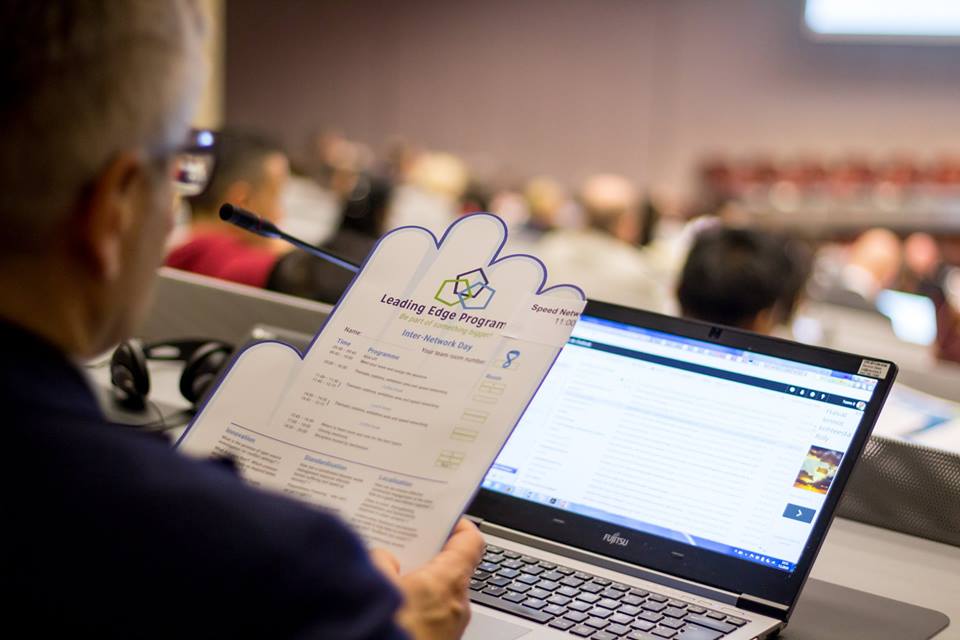The Humanitarian Networks and Partnerships Week (HNPW) is an annual programme co-chaired by United Nations Office for the Coordination of Humanitarian Affairs (UN OCHA) and the UK’s Department for International Development (DFID).
Since 2015, this event has been a forum, which brings together a large number of people from diverse groups, including the UN, Non-Governmental Organisations (NGOs), Member States, the Private Sector, the military, academia and others to meet and address key humanitarian issues.
More than 30 Networks and Partnerships held their annual meetings during the week and an Inter-Network Day took place mid-week which offered opportunities to learn, exchange knowledge and network.
This year, Start Network attended and was represented by:
- Shveta Shah - Head of Portfolio, Disasters & Emergencies Preparedness Programme (DEPP)
- Luke Caley - Crisis Anticipation Advisor and Project Manager
- Catherine Sneath - Start Fund Manager
- Haben Habteslasie - DEPP Advocacy and Communications Advisor
Here’s a summary of a few sessions they sat in on…
Global Disaster Assessment and Coordination system (GDACS)
The GDACS is moving towards more of an impact forecasting approach, using Index For Risk Management (INFORM) data to understand risks to populations and not just hazards. Technical improvements to their model continue to be made, including higher resolution population exposure data. Communicating uncertainty is a key challenge for presenting forecasts. GDACS presented a method which looked promising.
Conflict analysis network
The session was a pitch for a new conflict analysis network with context analysis, conflict sensitivity and purely analysis posed as the potential foci. The suggested organising themes were:
- Skills are key for transformation but building skills together through iteration is better than formal training
- There is a clear need for both head quarter and context level analysts.
- Start working backwards from decisions to make sure analysis is used.
- Create a safe space for exchange of frank views.
Global Preparedness Partnership (GPP)
This session was organised to harvest ideas from participants on novel approaches to preparedness. The GPP seems a weighty initiative which is struggling to move forward with any clarity of purpose or speed.
Requesting international assistance
This is a key theme in terms of humanitarian access for International Non-Governmental Organisations (INGOs). The rules of the international system are changing; we are seeing NGOs squeezed for permission, increasing bilateral arrangements between friendly states and a general reluctance for a state to declare an emergency. The session was a short introduction to the issue and an attempt to develop inputs on potential factors and strategies to address this.
Communication and Community Engagement Initiative (CCEI)
Across the sector, community engagement is seen as a being part of a more effective humanitarian response. This session explored the need for a collective approach to community engagement. Often, agencies who work in this area are underfunded, uncoordinated and ad hoc. Suggestions for overcoming this included having a pre-arrangement with donors to kick-off a collective approach in sudden onset disasters; ensuring a collective approach to community engagement is used in all coordination processes and to generate more evidence on the cost benefit of using a collective approach.
“As local as possible as international as necessary”: What does the localisation agenda mean for humanitarian cooperation?
This session explored what needs to change in order for agencies to meet the Grand Bargain commitment to localisation. Suggestions included the need for longer term relationships between local and INGOs, with capacity building as a key component; the need to do capacity building with governments in order to ensure the sustainability of humanitarian approaches. One challenge voiced was that capacity building takes a long time, however, it was agreed that short term progress and innovation was still taking place.
Independent joint and impartial needs assessments: Advancing Grand Bargain Commitments
When it comes to programming and funding, decisions are made based on humanitarian needs assessments, however, assessments are too often uncoordinated and therefore duplicated, thus wasting resources and putting a greater burden on affected populations. There needs to be a single cross-sectoral comprehensive assessment of needs for each crisis and coordination and streamlining of data collection. Furthermore, there is a clear gap in the analysis of information from humanitarian experts, despite the wealth of data available. It was also noted that inputs from local organisations at local operational clusters was key to developing this needs analyses.
Opening of the Inter-Network Day 2018, Geneva. Credit: Anna Francesca Jennings

